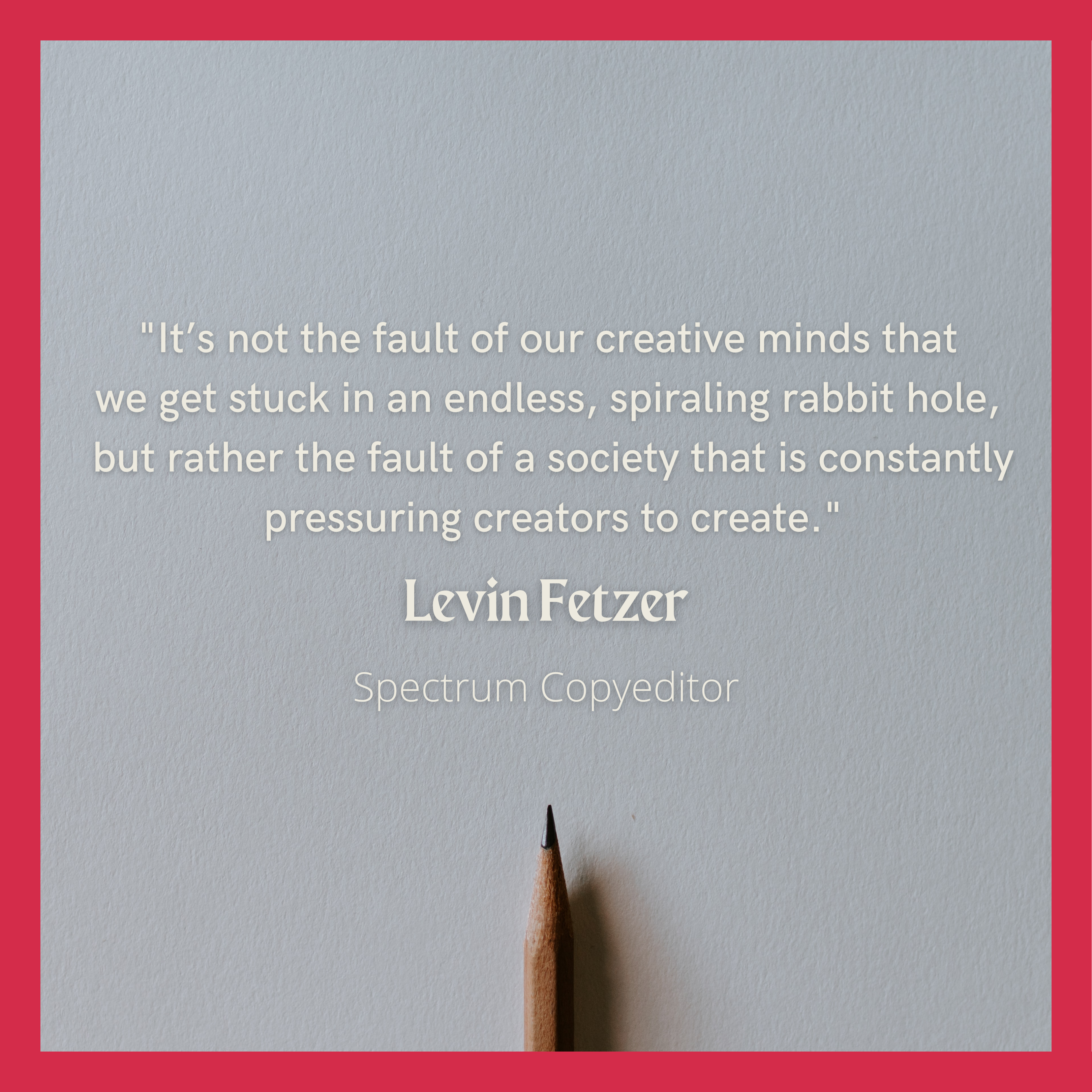To Create — And Not Just for a Paycheck

When I was in first grade, I wanted to have a Writing and Books themed birthday party.
I remember sitting in my sun-filled playroom, four or five close friends around me, a marker in my hand and my tongue between my teeth as I scribbled the few words I knew how to spell correctly (and many more that I did not) onto a blank page. The joyful creation that is Wonderland was real, and the friends at my house were wonderfully mad guests. We weren’t worried about word count. We weren’t worried about writing for someone else. We weren’t even worried about whether the words we wrote were spelled correctly, or even real. We were writing because we loved to write. I loved the feeling of making words appear on a page to go on to create something entirely new. I loved the feeling of taking myself away from the present and into a world that was entirely my own.
As creators, we are told that we must create, and that what we create must be marketable, sellable, profitable. It is only through our craft and art that we can succeed and officially call ourselves a creator. If we don’t find our work published, then we’re not actually a creator. Or, at least, that’s the narrative that is spoon-fed to us by society. In a world that is ruled by capitalism, it is of the utmost importance to publish work and reap the benefits from it, no matter how small. The end goal is always to produce, produce, produce. We are told to “think about the audience”, and “write/draw/paint/sing/dance for them”. There’s no such thing as having our craft be private, because if there was, it would be considered a waste of time. Art has to be for the People At Large, rather than just for the creator themselves. I sometimes wonder: why bother putting time and energy into writing a piece that no one but myself is going to read? What’s the point of being an author, if the world is already filled with more books than people (and we’re moving away from books, anyway)? Why am I even trying?
That, of course, is a vicious thought spiral that ends in dread, apathy, and depression. There’s no help in going down that rabbit hole, yet I go down it nonetheless, always searching for the bottom of the pit, and for a Wonderland that never comes.
The downward spiral always starts the same: I’m looking back over old pieces of writing, wondering why on earth I ever thought they were worth spending hours to create them. 35,000 words, and every single one of them absolute crap, I think to myself as I scroll over the pages that made up countless sleepless nights. And then the thought comes in: What’s the point? Because there is a point. There has to be.
Right?
But what if this wasn’t the end goal? What if, instead of there being an end goal, writers were able to just write, singers were able to just sing, painters were able to just paint, and dancers were able to just dance? What if, instead of working for the People At Large, we worked for ourselves, for our own pleasure and enjoyment? What if we were given free rein to simply create?
Maybe I’m mistaken, but I don’t believe I am the only creator who feels pressure to create. Assignments, deadlines, word counts, formatting— it is all superficial. There is so much more to writing (and creating in general) than these tools used by society to pressure us to create for the People At Large.
As a writer, I know how it feels to try and meet word count goals, to try to create pieces that will be palatable for the People At Large, to feel pressured into making something that fits into the boxes that society gives us. For myself and likely countless other creators, the block and anxiety that comes from staring at a blank canvas or sheet of music or page is largely due to the fact that we want our work to be publishable. It’s not the fault of our creative minds that we get stuck in the endless, spiraling rabbit hole, but rather the fault of a society that is constantly pressuring creators to create.
But let me ask you, the reader (potentially an artist yourself), a question: when you were a child, did you create out of profit? Or did it simply spark joy? Children do not create because they are wanting to get paid for their work; they create because they enjoy it, because it makes them feel good, because they love falling in love with the act of creating. Why can’t art be like that for everyone, regardless of age?
There is some irony to me writing about this topic for a blog post that I know will be published; believe me, I know. But believe me, too, when I say this: I am trying. I am trying to create outside of school, outside of assignments and deadlines and word counts and formatting. It— like the rest of me— is a work in progress. It will take time before I feel comfortable writing just for me. But I am getting there. Slowly but surely, the dread, apathy, and depression are fading, and the spiraling rabbit hole is becoming easier to side-step.
I will reach Wonderland. But I don’t need to fall to get there.